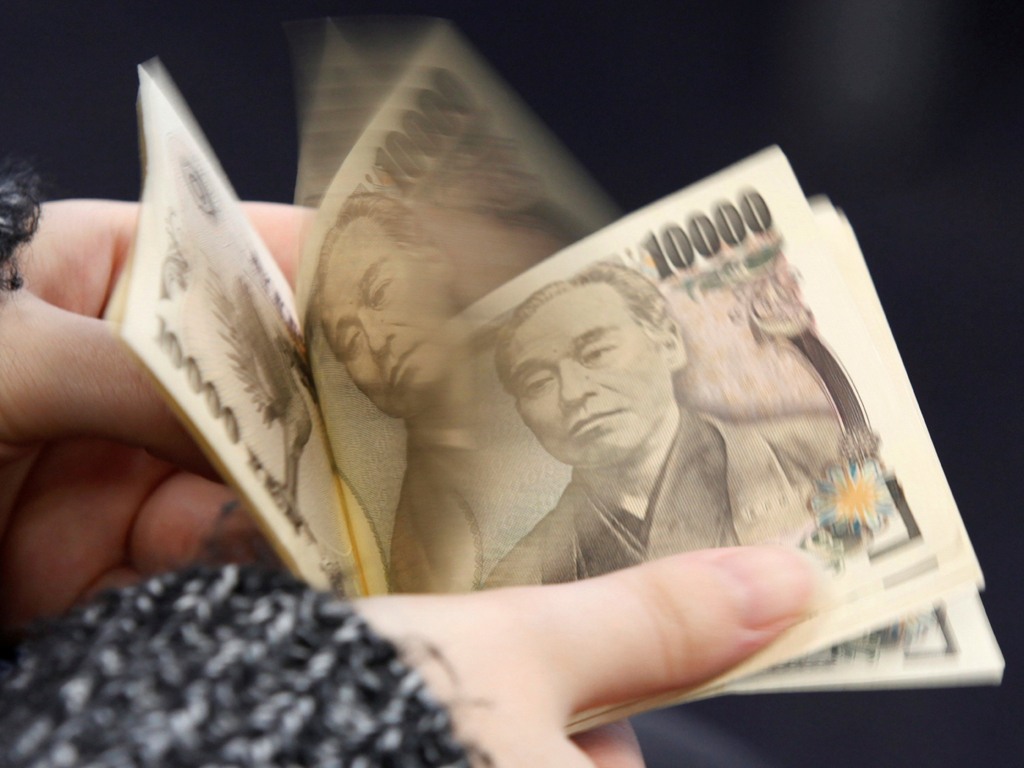Yen weakens, Aussie outperforms as risk sentiment improves
- The dollar gained 0.54pc against the Japanese currency to 109.04 yen.
- The euro, however, was subdued before euro zone finance ministers were expected to converge on Tuesday on three quick options to support the economy during the epidemic.
 NEW YORK: The Japanese yen dipped and the Australian dollar outperformed on Monday as risk appetite improved on optimism that the spread of the novel coronaviurus in the United States and Europe could be tapering, though an outbreak in Japan worsened.
NEW YORK: The Japanese yen dipped and the Australian dollar outperformed on Monday as risk appetite improved on optimism that the spread of the novel coronaviurus in the United States and Europe could be tapering, though an outbreak in Japan worsened.
President Donald Trump expressed hope on Sunday that the United States was seeing a "leveling-off" of the coronavirus crisis in some hot spots, but some of his top medical advisers took a more tempered view.
France's daily death toll fell in the past 24 hours, Italy reported its lowest daily COVID-19 death toll for more than two weeks on Sunday and Spain's pace of new deaths slowed for the fourth day on Monday.
"Today's currency moves are following the risk-on playbook closely," analysts at Wells Fargo led by Erik Nelson said in a report.
But Japan saw an increase in numbers. The country is to impose a state of emergency in Tokyo and six other prefectures as early as Tuesday to contain the coronavirus, while the government prepares a $990 billion stimulus package to soften the economic blow.
"We think today's JPY weakness has more to do with the strength in global equities than reports of a possible state of emergency declaration in Tokyo," Wells Fargo said.
The dollar gained 0.54pc against the Japanese currency to 109.04 yen.
The Australian dollar jumped 1.42pc to $0.6080.
The euro, however, was subdued before euro zone finance ministers were expected to converge on Tuesday on three quick options to support the economy during the epidemic.
Officials have until April 9 to design a package that satisfies members with completely opposing views: those calling for joint debt issuance and those fiercely against it.
The single currency dipped 0.08pc against the dollar to $1.0799.
Central bank actions have eased funding stresses that led to a scramble for dollars in March. That has also helped reduce bets that the greenback will book further gains, after the dollar index hit a three-year high of 102.99 on March 20.
The index traded at 100.71 on Monday, down 0.07pc on the day.
Speculators' net short US dollar positioning in the latest week touched its highest since May 2018.
The cost of swapping euros and sterling for dollars in FX swap markets fell on Monday to the lowest in over a decade, a sign of success for central bank operations, though other indicators imply some money market stress remains.
Sterling was last up 0.24pc at $1.2290, after slipping overnight on reports that Prime Minister Boris Johnson had been hospitalized with persistent COVID-19 symptoms.





















Comments
Comments are closed.